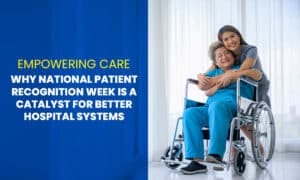
Across the healthcare industry in India also around the world, without hospital management system the healthcare providers of all shapes and sizes face revenue leakages. Revenue leakage usually is unforeseen and unrecognized loss of revenue in your hospital. Manual processing is one of the major contributors for revenue leakage in a hospital setting; for example, without hospital management system having patient’s medical records in papers would take time to locate patient’s record, retrieve the demographic and clinical data, analysing visit history, medical history, lab orders, prescriptions and so on.
Some of the other major contributors are patients make appointments but not showing up, improper patient referral management, lack of communications with patients, and patient engagement. Other common causes of revenue leakage are missed/mistakes in inpatient services, unplanned discounts, unresolved medical claims, medical insurance denials, and underpayments by insurance companies.
Implementing an integrated and robust hospital management system would help manage your healthcare processes better, analyse and track records, to reduce revenue leakages.
Causes of Revenue Leakage in Healthcare Industry
There are many reasons which causes revenue leakages in your healthcare business.
- Not tracking department wise revenue
- No patient registration or insufficient patient registration data.
- Paper-based hospital record management
- Poor patient engagement
- Inefficient communication management
- Manual data and billing entries
- Not recording or Incorrect or inadequate of medical procedures
- Errors in insurance companies-providers agreements
- Not tracking and controlling hospital operating cost
- Unplanned purchases
- Not tracking assets and utilization
- Improper workforce management
Why is it vital to stop or reduce income leakage in the healthcare industry?
Stop or reduce revenue leakage important as it can result in lost earnings in your healthcare business. Most of the revenue leakages are not noticed and it would impact your health of your hospital finances. One of the healthcare industry studies shows that approximately one to five percent revenue leakage from total earnings.
Below are some of the primary effort’s healthcare providers can review and implement to minimize or prevent revenue leakages.
Implement an Integrated and easy to use Hospital Management System –
Many hospitals use an integrated hospital management system to help engage patients better, manage, and optimize their patient care processes. However, hospital management system must be designed specifically for your healthcare practices and processes by considering into account the special requirements of the size and various practices of your healthcare facility.
A good hospital management system must or can be easily integrated with all the departments such as store, pharmacy, lab radiology, hospital accounting, auditing and offers the functionalities necessary for complex hospital management. It manages patient care processes, and links data in a patientcare cycle, seamless dataflow, reporting, alerting, flagging mistakes and quality issues.
Ensure all relevant patient data is collected at the front desk –
Your patient registration functionality in your hospital management system must have all the provisions to capture all the important patient’s data including insurance details.
- Contact Details
- Referral Details
- Personal Details
- Emergency Contact Details
- Payer Details
- Patient Documentation Management
- Disability details
Accurate patient details would help better patient engagement, patient care, manage and track payments to reduce revenue leakage.
Patient Engagement Functionalities in hospital management system
Cost-effective patient engagement with communication management software integrated with your hospital management system is the best way to retain your patients, improve patient care and revenue.
Stop using paper-based hospital record management today, using a better patient registration is important in a HIMS for documenting patient registration with all relevant data. Automated hospital communication management system with SMS, WhatsApp, email or other communication medium are the primary tools for better patient engagement.
Advanced hospital management system must have tele-medicine capabilities for follow-up patient care.
Token Management system
The token management system helps hospitals to maintain a patient appointment data with the help of real-time updates, monitor patient flow, keep track of all appointments, and ensure billing accuracy.
A completely automated hospital management system will reduce patient wait times, streamline communication, and increase patient satisfaction. A well-organized queue management enhances both revenue and care service quality.
Optimize Purchase & Stock Management
An efficient supply chain management allows hospitals to maintain track of their inventory levels, such as indents, purchase transactions, inventories required for operation theatres, supplier details, and payments, which provides insights into their operational effectiveness.
Hospital inventory management software will assist you in limiting operating costs and providing real-time accurate inventory data. Reduce the number of duplicate purchases and wastage.
Reduce No-show Patients by using Appointment Reminders
Your hospital management system must have secured appointment reminders for those booked prior appointments. The reminders could be via emails, SMS or business WhatsApp. The reminders must be automatically sent with simple configuration in your hospital appointment management system. The appointments could be for outpatient care, lab or radiology orders, or to refill monthly prescriptions.
Define your Hospital Healthcare Process & Optimize
It is essential to ensure that the entire healthcare process is optimized to prevent revenue leakages and increase ROI. An efficient hospital management system can help in achieving this. It helps streamline processes of all the department in your hospital. All the departments’ staffs must have relevant access to HMS to access real-time data for timely response for patient engagement.
Outpatient department, all the stakeholders and their responsibilities must be defined upfront and train them well for efficient outpatient management and to improve the patient flow and revenue. Similarly, all the departments must have the process defined and a hospital management system must be in place to support your healthcare process to optimize your hospital operating cost and improve overall ROI.
This ensures that all the data related to patients is managed in an organized way while providing insights on how to improve your hospital administrative operations. It also helps detect any potential revenue leakage due to mismanagement of resources and discrepancies in billing processes.
Regular Audits and Monitoring with Well Structured Data Maintenance
Here are few practices you can implement to your hospitals for better revenue and proper strategy execution.
Conduct Regular Audits & monitoring; Optimize Hospital Audit Processes
Regular audits and monitoring of hospital operations are critical for ensuring compliance with regulatory standards, improving hospital staff’s efficiency, efficient use of medical equipment, patient safety, and robust billing process, preventing financial losses. With the help of hospital management systems, hospitals can now easily identify discrepancies in their inventory or billing records. This helps them take corrective measures quickly and ensure that their operations are running smoothly.
By conducting regular audits, hospitals can also detect any inconsistent or fraudulent activities being committed by its staff or vendors. This helps them in preventing financial losses and managing their resources more efficiently.
Create Structured Data to Ensure data integrity & Better Hospital Billing.
Structured HMS database helps hospitals streamline their patient engagement, and billing processes, as it allows for a more efficient way of processing, verifying and validating bills before they are sent out. This can not only save hospitals time, but also money in the long run as it prevents potential revenue leakages caused by incorrect bills or incorrect payments.
Furthermore, structured data can also help hospitals provide better patient care by providing them with accurate patient records which can be used to track performance and monitor outcomes.
Train hospital staffs on billing, and documentation
To provide the best care possible to patients, it is essential that hospital staffs are trained on all the processes. With a proper hospital management system in place, training hospital staff on all the functionalities including hospital billing and documentation will help to prevent revenue leakages by ensuring accurate and timely billing for services rendered.
By implementing an effective training program for hospital personnel involved in billing and documentation, hospitals can ensure that their staff members have the knowledge and skills necessary to process payments accurately and efficiently.
Track health insurance denial management and underpayment
Health insurance denial management and underpayment are important concerns for hospital. Without proper tracking and monitoring of these issues, hospitals can lose a significant amount of revenue due to denied claims or underpayments from insurance companies.
By using the right hospital management systems, hospitals can prevent these revenue leakages by ensuring that all claims are processed correctly and that payments are received in a timely manner. This will not only help them save time but will also ensure that they receive the full amount owed to them from insurance companies.
Provide patient OPD or IPD estimates
The ability to accurately provide estimates for outpatient department (OPD) or inpatient department (IPD), lab, and other department services can help hospitals manage their resources better and prevent revenue leakages.
A hospital management system with a built-in AI powered OPD or IPD estimation tool can help healthcare administrators quickly give a reliable estimate on how much any patient should expect to pay for their treatment. This will ensure that you will not overcharge your patients, and the hospital is not losing out on potential profits due to inaccurate estimates.
Keep track of accounts receivables
To keep track of their accounts receivables, hospitals can use a Hospital Management System that includes features such as automated reminders, streamlined invoicing, and analytics capabilities. The system can help hospitals to easily track the payments that are due from patients or insurance companies and take appropriate action if payments are delayed.
It can also help hospitals to identify any inconsistencies in the payment process. This will not only help them to reduce losses due to inconsistencies but also optimize their financial operations by bringing transparency into the entire process.
Review reports and dashboard
Hospital management system provides real time insights to their operations. Review reports and dashboards is one of the efficient tools that help hospital management to stay on top of their game by providing comprehensive insights into how their organization is performing.
This enables hospital managers to immediately identify potential income leaks and areas for development, allowing them to ensure that their revenue stream remains robust while also preventing losses due to mismanagement or neglect.
Furthermore, these tools can help hospitals make informed decisions about growth initiatives and marketing strategies, which can ultimately lead to higher profitability for the organization.
Conclusion
When you automate your hospital with Hospital Management System it will help you to take all these measures in a incredibly simple way. At the end of the day, a single screen may provide you with all the insights you need to eliminate leakage and manage your operations more effectively using Ezovion HIMS. To learn more, please contact us or schedule a demo with one of our professionals.





